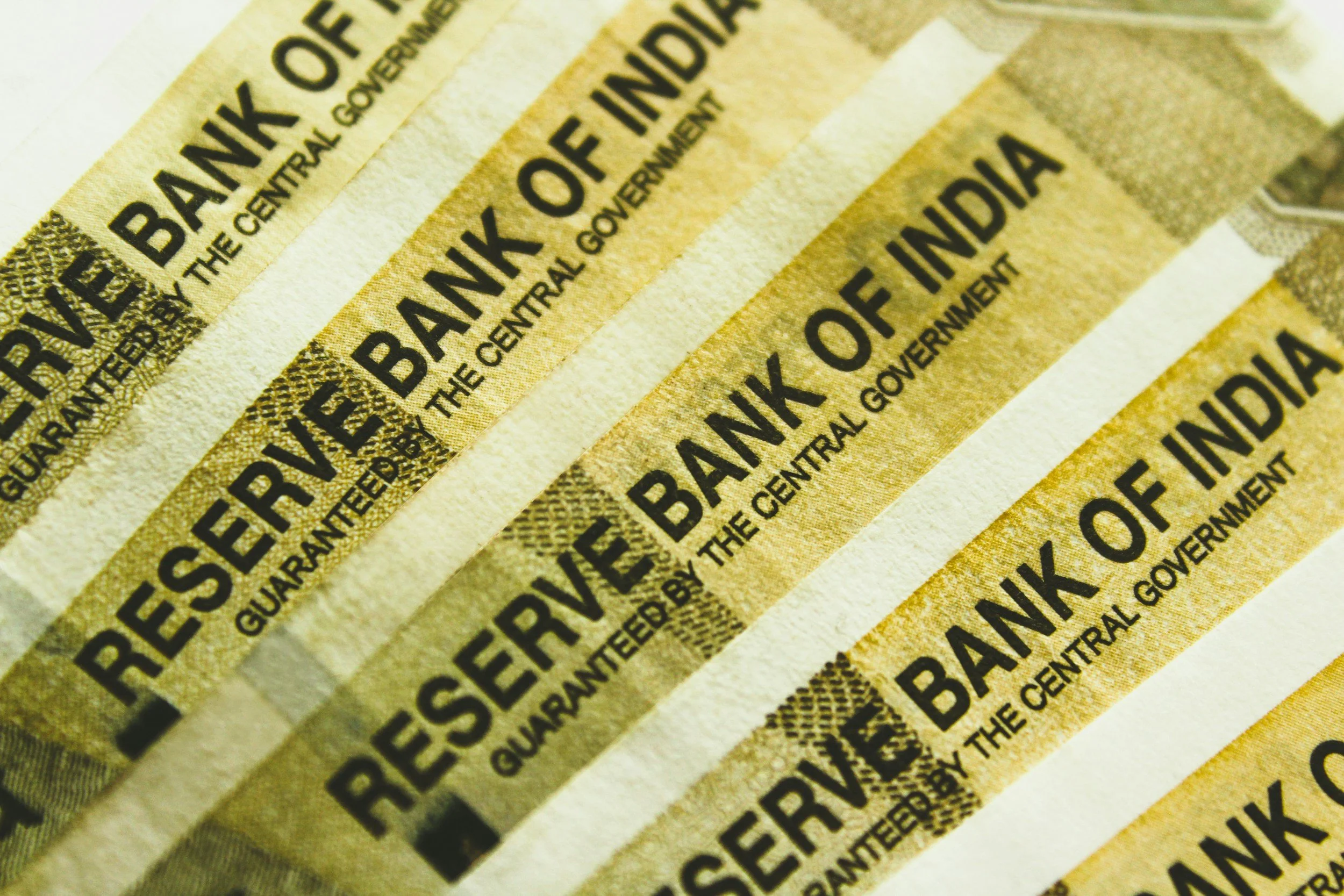udaibir das
DISTINGUISHED fellow
Udaibir Das is a Distinguished Fellow at ORF America, Visiting Professor at NCAER (India), Senior Non-Resident Adviser at the Bank of England (UK), Senior Adviser to the International Forum of Sovereign Wealth Funds (UK), Distinguished Visiting Faculty at the Kautilya School of Public Policy (India), and Senior Advisor and Program Leader at the Toronto Centre (Canada).
With a four-decade career spanning the IMF, World Bank, BIS, Reserve Bank of India, and Bank of Guyana, Mr. Das has advised over 40 countries on economic, regulatory, and institutional issues of the financial sector and its macroeconomic intersections, including public debt—from the Asian financial crisis to COVID-19.
A keen observer of macrofinancial uncertainty, he focuses on emerging policy intersections that shape the future of global finance. He deeply engages in teaching, mentoring, advising, and writing, including commentaries, papers, and podcasts. His research focuses on Africa, the Global South, emerging markets, climate finance, sustainability, and the evolving role of technology in policymaking.
Publications
By Udaibir Das
For the first time in years, the Budget addresses not just who issues debt but also whether it actually trades afterwards. A new market-making framework for corporate bonds, accompanied by instruments that let investors take positions on bond performance without holding the bonds, marks a departure from India's longstanding focus on issuance while ignoring liquidity.
By Udaibir Das
Global financial institutions continue to frame the 2026 outlook for emerging markets through a familiar cyclical lens. The consensus assumes U.S. monetary easing, a softer dollar and a modest global slowdown will favor local-currency assets, credible disinflation paths and balance-sheet repair. This narrative is historically grounded and internally coherent. It is also increasingly insufficient.
By Udaibir Das
The Trevor Manuel G20 Africa Expert Panel Report reframes Africa’s constraints as a single system of mispricing, debt compression and governance asymmetry. Its proposals for refinancing, collective bargaining and International Monetary Fund quota reform mark the first coordinated attempt to shift power within the international financial architecture.
By Udaibir Das
Ubuntu economics does not invoke moral claims. It advances a structural argument: Africa’s demographic momentum, mineral endowments and ecological assets are central to global prosperity, and instability in the region imposes system-wide costs. The reform frameworks are now primarily in place. The question is whether the political and institutional conditions of 2026 permit their implementation.
By Udaibir Das
While stability prevails in institutional titles, resilience prevails in policy content. This shift influences the oversight and allocation of approximately $470tn in global financial assets. This has structural implications and affects public accountability.
By Udaibir Das
What began as a spread on a bond has become a spread across the sovereign balance sheet. The 2025 annual meetings have made clear that incremental adjustments will not suffice. Until new institutions and norms emerge, sovereigns will continue to pay in basis points and in ownership and discover that what the premium buys is not sovereignty, but postponement.
Background Paper No. 35
By Udaibir Das and Hansika Nath
By Udaibir Das
In a climate emergency, redundancy might be precisely what resilience requires. The sovereignty premium is that insurance price. Whether it’s worth paying depends on how much autonomy matters versus efficiency – and whether choice exists at all.
By Udaibir Das
Financial surveillance fails when it matters most. Every major financial disruption – from the 1997 Asian crisis to the 2008 financial crisis or recent geopolitical shocks from wars, sanctions and trade realignments – has exposed how blind spots persist in national systems, regional arrangements and global oversight.
By Udaibir Das
In dynamic-system terms, the global economy has shifted from a high-integration equilibrium towards a more fragmented state, but the transition path is still in motion. For financial institutions, the challenge is calibrating marginal gain in resilience against the marginal erosion of competitive advantage.
By Udaibir Das
While financial institutions promote debt swaps as ‘win-win’ solutions that address both debt distress and development financing, borrowing countries report a systematic failure in achieving both objectives, revealing an inversion of development finance principles.
By Udaibir Das
If climate finance is to support transitions that are durable and inclusive, it must evolve to accommodate precisely these kinds of interventions: institutionally grounded, locally designed and systemically significant.
By Udaibir Das
As private digital tokens gain ground, existing oversight and payment monitoring frameworks are struggling to keep pace. While regulators debate their response, the market—driven mainly by U.S.-based technology and market actors—is moving ahead.
By Udaibir Das
China must build on its institutional progress and the policy suggestions noted in the 2025 FSSA while adapting to a more fragmented global financial landscape. The shift from insulation, as pointed out by the IMF in 2010, as well as the shift to sensible integration, as outlined by the IMF in 2025, stays unfinished.
By Udaibir Das
As concessional finance declines, vulnerabilities mount and aid priorities shift, vulnerable low-income countries must increasingly rely on domestic sources of funding. Efficient capital markets are not a luxury – they are foundational infrastructure for economic growth.
By Udaibir Das
The key question is not whether the decline in aid and external assistance will push these economies towards more debt – it already does – but rather what kind of debt they will incur and what long-term implications it will bring.
By Udaibir Das
As AI takes on a greater role in economic analysis and policy, an unsettling question arises: will its ability to recognise systemic risks with historical precedents weaken with a lack of immediate algorithmic reference?
By Udaibir Das
The world’s most populous democracy faces a turbulent landscape of geopolitical rivalries, technological shifts and the urgency of climate action. The question remains: will global economic forces propel India toward leadership or will they impede its ascent?
By Udaibir Das
In 2024, Africa’s economic and political importance grew significantly, laying a strong foundation for 2025 to be a transformative year for the continent.
"Rebalancing Globalization: Perspectives from the Global South" attempts to provide a framework for the next phase of globalization that is rebalanced and sustainable and can address issues that matter to the Global South.
Edited Volume
By Anit Mukherjee, Dhruva Jaishankar, Alan Gelb, Pamla Gopaul, Marta Bengoa, Shayak Sengupta, Aude Darnal, Elizabeth Sidiropoulos, Udaibir Das, Veronica Jijon, and Lorrayne Porciuncula
Editors: Anit Mukherjee and Dhruva Jaishankar
By Udaibir Das
Where do Brics, the International Monetary Fund, and the World Bank overlap in their newly released communiques on the global economic landscape?
By Udaibir Das
How do sovereign wealth funds navigate current times while building portfolio resilience?
By Udaibir Das
How can countries with small and shallow financial markets adopt financial stability reports that are more suited for their economic conditions?
By Udaibir Das
How should China refine its financial reform strategy to better align with its economic ambitions and responsibilities?
By Udaibir Das
The decisions from the 20th National Congress and the Third Plenum collectively represent significant strides in reinforcing the financial sector’s role as China recalibrates its growth model.
By Udaibir Das
The UK is poised to make a significant impact with the National Wealth Fund (NWF), a fund designed to spearhead its green transition and support sustainable growth. Will the UK’s NWF be a guiding economic beacon or just a political mirage?
By Udaibir Das
The IMF’s RST is a significant step forward in mobilising climate finance, focused on leveraging private sector involvement. By learning from the RST’s successes and challenges, other international efforts can enhance their strategies to attract private capital, creating a more sustainable and resilient global economy.
By Udaibir Das
To effectively manage debt and all liabilities, a top-down, country-wide reform is necessary to move towards a comprehensive liability management function.
By Udaibir Das and Wayne Byres
After 50 years, the Basel Committee’s standards are crucial for maintaining global financial stability.
By Udaibir Das
The current global economic and capital market conditions necessitate reassessing conventional portfolio construction and risk management practices.
comments
By Udaibir Das
When finance is discussed in the context of India’s trade agreements, the debate polarizes: either India is genuinely opening, or it remains stuck in defensive regulation. But neither captures what is happening: India is selectively binding regulatory discretion, exporting specific platforms, and keeping control over balance-sheet risks.
By Udaibir Das
Amid rising financial instability, slowing growth, trade wars, and persistent inequality, the Global South faces growing vulnerabilities yet remains pivotal to the world economy’s future.
By Udaibir Das
Whether governments seek to phase out energy subsidies, reform pensions, or expand tax bases, success now hinges on how well reforms are explained, sequenced, and backed by credible commitments.
By Udaibir Das
By deepening financial resilience, accelerating capital market reforms, and fostering global financial integration, India can reinforce its position as a stable, competitive, and inclusive financial powerhouse—one that is fully aligned with its long-term economic ambitions.
By Udaibir Das
While framed to correct trade imbalances and protect domestic industries, reciprocal tariffs’ effects extend far beyond manufacturers, exporters, and importers.
By Udaibir Das
When viewed through the lens of financial channels — capital flows, exchange rates, and investment patterns — the implications of the U.S. policy reset for the Global South become clear.
By Udaibir Das
What are the concerns attached to the G20's “Roadmap Towards Better, Bigger, and More Effective Multilateral Development Banks (MDBs)”?















































